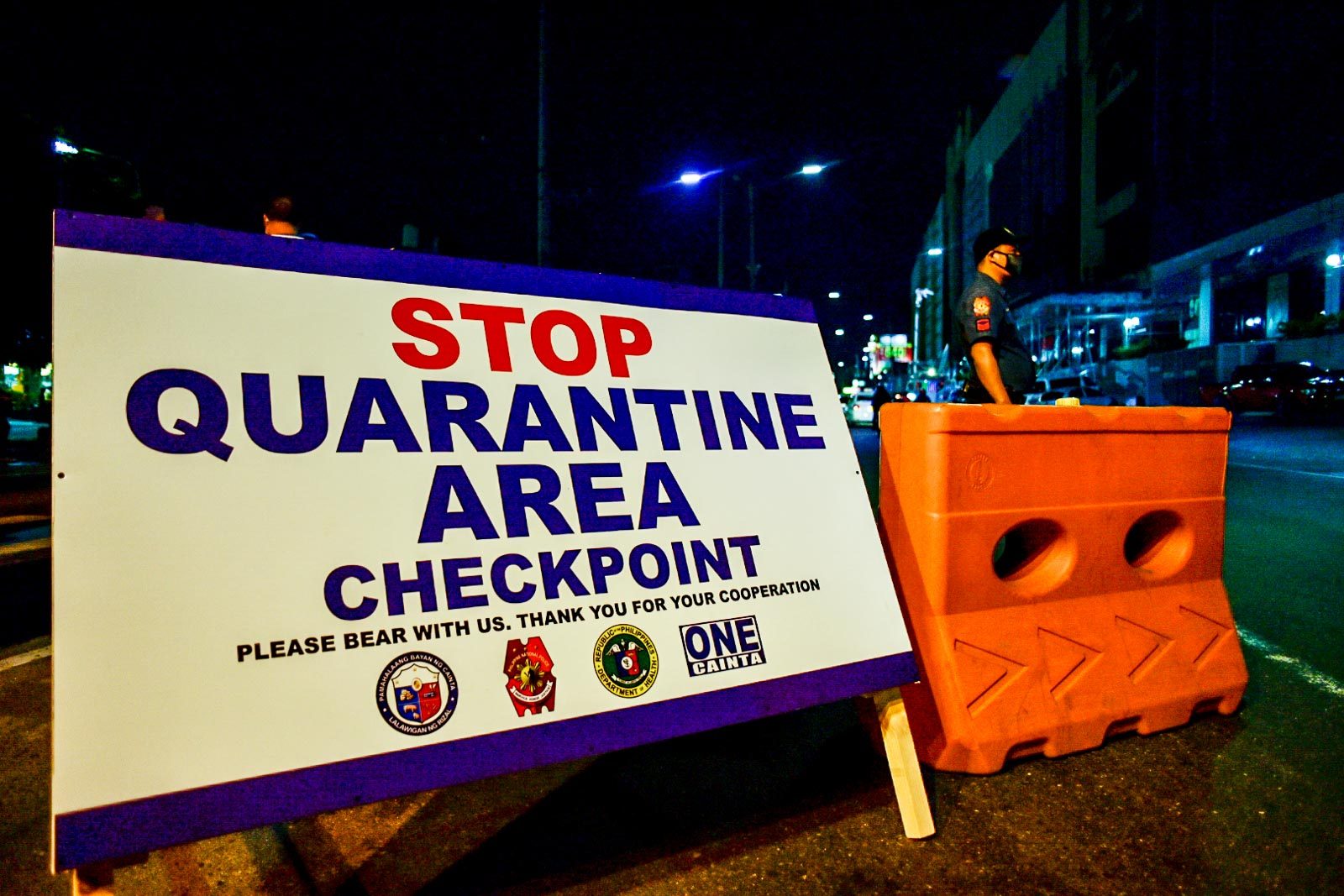SUMMARY
This is AI generated summarization, which may have errors. For context, always refer to the full article.

MANILA, Philippines – The Inter-Agency Task Force (IATF) on the coronavirus pandemic has set the guidelines for the government decision to lift or extend the Luzon lockdown which is supposed to end on April 12.
Cabinet Secretary Karlo Nograles announced this in a media briefing done via teleconference on Saturday, April 4, where he enumerated the results of the IATF meeting held on Friday, April 3.
The IATF spokesperson said the task force adopted the following parameters proposed by its sub-technical working group on data analytics on deciding on the total or partial lifting, or possible extension of the enhanced community quarantine in Luzon:
- Trends in the COVID-19 epidemiological curve, which include, among others, the doubling time, acceleration, or deceleration of new cases
- Capacity of the health care system, which includes, among others:
- the number and availability of quarantine, isolation, and treatment facilities
- the capability to mount contact tracing
- the availability of Personal Protective Equipment (PPEs) for frontliners, and the testing capacity of the country
- Social factors
- Economic factors
- Security factors
“For this purpose, the Department of Health (DOH) is hereby directed to convene all concerned agencies and to finalize the aggregation and analysis of all relevant data applicable to the contained area, subject to the deliberation of the IATF and final determination by the President,” Nograles said.
The IATF approved the guidelines as the country’s coronavirus cases hit 3,018, with 136 deaths as of Friday.
Nograles also said on Saturday that the IATF has directed the sub-technical working group on data analytics to apply the same parameters and come up with recommendations “with regard to the possible implementation of a general or enhanced community quarantine in localities in the Visayas and Mindanao.”
Some places in the Visayas and Mindanao have already imposed either a general or enhanced community quarantine to help stem the spread of the coronavirus disease.
Since March 17, strict quarantine measures to keep people in their homes were put in place for the entire Luzon, where the most number of confirmed coronavirus cases are.
Some 57 million residents in 8 regions were told to observe physical distancing measures, to help protect against coronavirus infection. As a result businesses, except for those providing essential services, had to temporarily shut down, dealing a blow to the economy and daily wage earners.
The government had earlier consulted businessmen about the lockdown. Presidential Adviser for Entrepreneurship Joey Concepcion had proposed a shift to selective quarantine at the barangay level after the Luzon-wide lockdown.
Nograles also said on Saturday that the IATF has directed the DOH, together with the Food and Drug Administration (FDA), to draft guidelines for the use of FDA-approved COVID-19 rapid test kits, including lateral flow assay kits, “to rationalize testing protocols as well as to complement the existing capacity of the country to conduct reverse transcription- polymerase chain reaction (RT-PCR) testing.”
The government plans to start its “massive” testing of persons under investigation and monitoring for the coronavirus on April 14. The experience in countries like South Korea, which has been lauded for its handling of the coronavirus outbreak, showed that mass testing is key to fighting the spread of the virus. (READ: Lessons from South Korea: Transparency, rapid testing, no lockdowns)
Nograles said that the IATF has also agreed that Health Maintenance Organizations (HMOs), the Philippine Health Insurance Corporation (PHIC), and health insurance providers, “shall be considered as part of health frontline services, for purposes of exempting their workers in the implementation” of the enhanced community quarantine. – Rappler.com
Add a comment
How does this make you feel?
There are no comments yet. Add your comment to start the conversation.